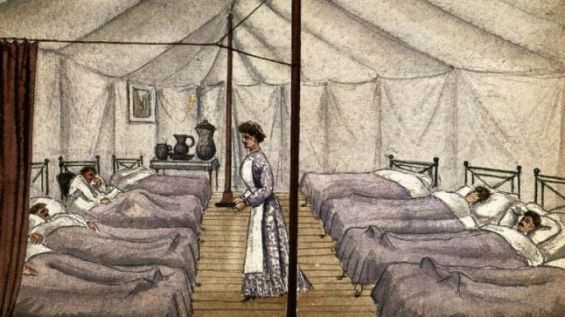Moroccans will soon have to take shots against the coronavirus. Morocco, like many other countries around the world, has promised to launch in the coming weeks a vaccination campaign relying on China’s Sinopharm and Britain’s AstraZeneca.
Long ago, Moroccans found themselves in the same situation as they were battling smallpox, an infectious disease that hit the Kingdom in the nineteenth century. Back then, a vaccination campaign, mainly led by the royal court and French doctors, was also launched.
However, tribesmen in both rural and urban Morocco rejected fiercely said vaccination campaign. In fact, between the 1840s and the beginning of the 1900s, Moroccans outright refused to get vaccinated against smallpox.

The reasons behind this fierce rejection was mainly «political». In her book «Medicine and the Saints : Science, Islam and the Colonial Encounter in Morocco, 1877-1956» (University of Texas Press), historian Ellen J. Amster explained that «as they assimilated French medical technologies for cure, Moroccans used them to debate the erosion of state, territory and sovereignty in Morocco».
Vaccination and Makhzen
To Amster, Moroccans who did not trust the state and its policies and who doubted its proximity with the French, opposed vaccination and saw in their refusal an act of revolt. As a matter of fact, Moroccans «had no objection to the concept of vaccine itself». Instead, they associated the new technology in the popular imagination «with the Makhzen».
Those who accepted to take the vaccine were «closely affiliated with the Sultan’s court». Accounts reveal that in Marrakech, for example, only notables and the Jews accepted to get vaccinated, while tribesmen from the countryside in the Rahamna and Haha refused it.
In other cities, the Muslim clientele that considered vaccination and approached French doctors for it consisted of «governmental administrators, soldiers and functionaries of the state», the same book unveiled.
And as mentioned before, those who rejected the vaccine in Oujda, Mogador and Safi, between the period of 1844 to 1907, were tribesmen who were hostile to the Makhzen, as reported by French doctors.
.jpg)
The Rahamna and Haha tribes, for example, «were in open revolt» against the state and «switched their allegiance from Sultan Abdelaziz to his brother Abdelhafid», which explained their rejection of the vaccine.
This rejection, in some parts of the country, turned into violent riots. While rural patients crowded «French dispensaries and accused French doctors of poisoning them», others in Mogador in 1909, «tried to murder» a doctor.
Vaccine and tattoos
Another reason that pushed Moroccans in the 19th century to reject vaccination was «ideas about bodies and their place in the world», according to the same historian. The latter revealed that our ancestors objected «the use of needles to create marks on the body».
«In Morocco, marks on the body, particularly tattoos, had military, religious or tribal significance», Amster wrote.
Indeed, Moroccans viewed tattoos as social indicators that marked the identity of each of them. «All members of the corporation of riflemen attached to the Nasiriyya Sufi brotherhood were identified by a tattoo on the shoulder», the book explained.
Jewish women were tattooed differently, while the sultan’s soldiers (Jaysh) had between their thumbs and forefingers tattoos that distinguished them from others. «Because tattoos could transform social identity, Moroccans suspected any procedure that could permanently mark the body», the historian explained.
Contrary to the claims of French colonial lobbies, Moroccans did not reject foreign medical technologies, as they practiced inoculation –the historical forerunner to vaccination-, but refused the political circumstances in which it was administered and introduced.





 chargement...
chargement...













